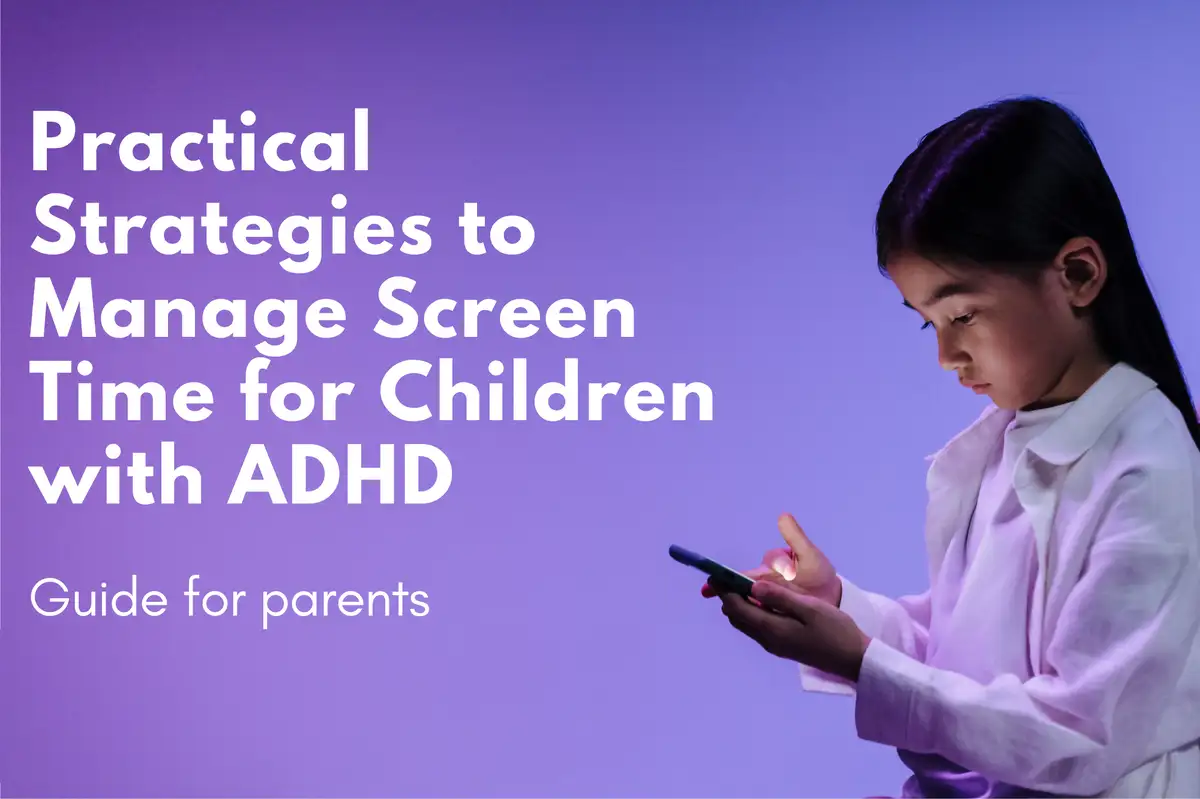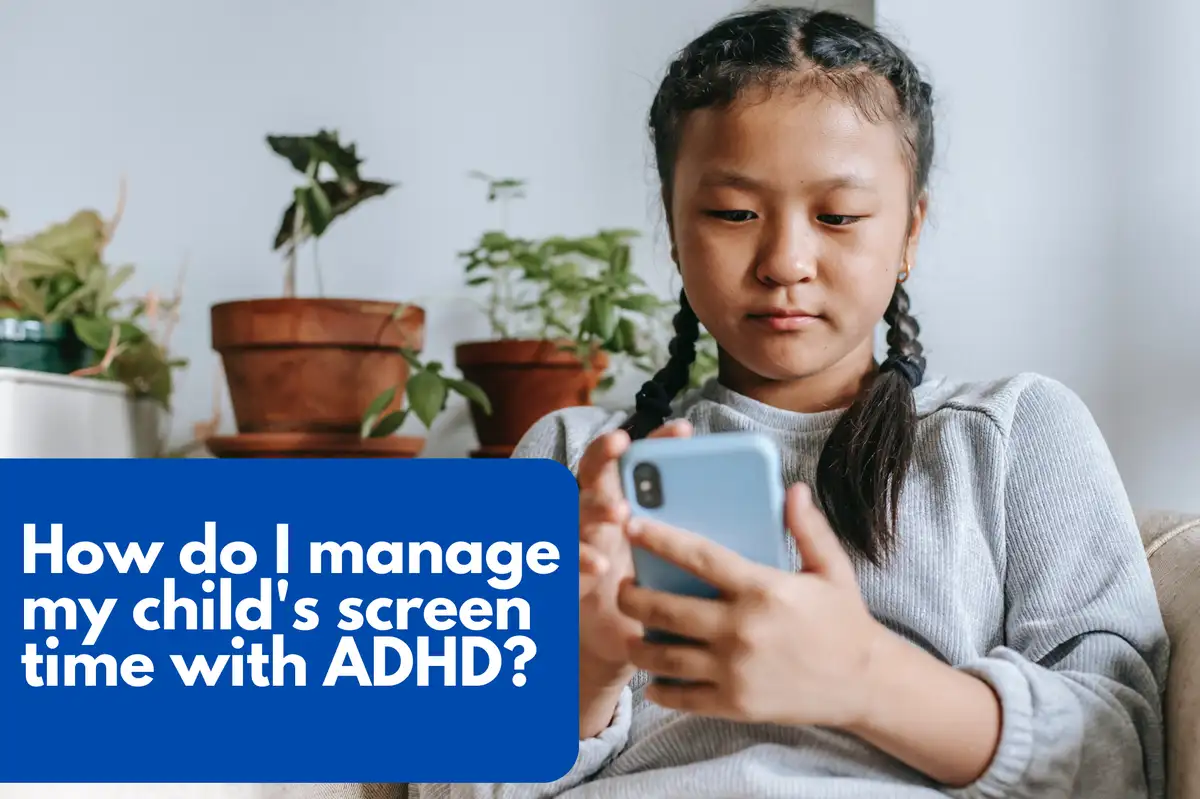Effective Strategies to Manage Screen Time for Children with ADHD
Children with ADHD (Attention-Deficit/Hyperactivity Disorder) often experience heightened screen attraction due to their unique neurology. Excessive screen time, whether it's TV, computers, or smartphones, can exacerbate ADHD symptoms and disrupt sleep patterns. Managing this crucial aspect is essential to ensure holistic development and well-being. In this guide, we offer comprehensive strategies to manage screen time effectively for children with ADHD, highlighting the invaluable features of the Avosmart parental control platform.Understanding the ADHD-Screen Time Connection
Children with ADHD are drawn to screens because of the instant gratification and constant stimulation they provide. Recognizing this connection ensures that our screen time management strategies are both empathetic and effective.Key Points:
- Instant Gratification: Digital games and social media offer immediate rewards, catering to the impulsivity aspect of ADHD.
- Continuous Stimulation: Rapid scene changes and immediate feedback align with the high-energy, low-focus nature of many children with ADHD.
Introducing Avosmart: A Premier Parental Control Solution
When considering digital solutions to manage screen time, Avosmart stands out as one of the world's best parental control platforms. Here's why Avosmart is an indispensable tool for parents:- Time Management: Avosmart allows parents to set daily limits for specific apps and websites.
- Detailed Insights: Parents receive accurate reports on how much time their children spend on various media.
- Flexible Scheduling: Beyond just daily limits, Avosmart enables parents to set specific hours for app and website access. For instance, parents can allocate 2 hours daily but restrict it between 4 PM to 8 PM.
- Combined Limits: Integrate both time limits and schedules, ensuring children access media during safe, parent-approved hours.
- Night Restrictions: Avosmart can block device usage during nighttime hours, ensuring undisturbed sleep for children.
Tailored Strategies for Managing Screen Time
1. Establish Clear Screen Time Rules
Using platforms like Avosmart, parents can provide a structured screen schedule, allocating specific times for educational content, entertainment, and breaks.2. Prioritize Physical Activity
Encourage activities that require physical movement. This acts as a screen break and helps dispel the excess energy typical in children with ADHD.3. Leverage Avosmart for Optimal Time Management
With Avosmart's intuitive features, parents can effectively set and monitor daily screen limits, ensuring a balanced digital diet for their children.4. Encourage Non-Screen Hobbies
Promote hobbies like reading, crafting, or playing musical instruments. These can provide the stimulation children with ADHD seek without screens.5. Ensure Quality Over Quantity
Curate a list of educational and beneficial apps, games, and shows. It's not just the time but also the content consumed that matters.6. Stay Informed and Involved
Regularly review the apps and games your child interacts with, and leverage Avosmart's reports for deeper insights.7. Implement Screen-Free Zones
Designate areas of the house, like the dining room or bedrooms, as screen-free zones to encourage interpersonal interactions.Addressing Screen Time Challenges
Every child with ADHD is unique. Continuous assessment and adjustments are essential to strike the right balance between digital engagement and offline activities.Points to Remember:
- Patience is vital when implementing changes.
- Seek your child's feedback and adjust strategies accordingly.
- As technology evolves, so should your approach to screen time management.
FAQ: ADHD and Screen Time
Q: Can a child with ADHD sit still and watch TV?
A: Yes, many children with ADHD can sit still and watch TV, especially if the content is engaging or offers constant stimulation. Television often provides rapid scene changes and immediate feedback that align with the high-energy, low-focus nature of many children with ADHD. However, it's important to monitor the type and amount of content being consumed to ensure it's beneficial for the child's overall development.Q: Should kids with ADHD have phones?
A: Children with ADHD, like other children, can benefit from having phones, especially for communication and educational purposes. However, there are specific considerations for children with ADHD:- Impulsivity: Children with ADHD might be more impulsive and could use the phone in ways that aren't always safe or appropriate. Parental control features and regular monitoring can help address this.
- Overstimulation: Constant notifications and the allure of games and apps can exacerbate ADHD symptoms. Setting limits and ensuring the phone is used primarily for its intended purpose is essential.
- Sleep Disruption: Screen time, especially before bed, can disrupt sleep, which is crucial for children with ADHD. Having strict guidelines about phone usage before bedtime can mitigate this.
Q: What can make ADHD worse in children?
A: Several factors can exacerbate ADHD symptoms in children:- Lack of Routine: Children with ADHD often thrive on structure. A lack of a consistent routine can make symptoms more pronounced.
- Sleep Deprivation: A good night's sleep is vital for everyone but even more so for children with ADHD. Lack of sleep can worsen inattentiveness and impulsivity.
- Diet: Certain foods and additives have been suggested to aggravate ADHD symptoms in some children. It's essential to monitor and adjust the child's diet based on their individual reactions.
- Excessive Screen Time: Overexposure to screens, especially stimulating content, can heighten ADHD symptoms. It's important to manage and balance screen time effectively.
- Stress: Stressful situations or significant life changes can exacerbate ADHD symptoms.
- Inconsistent Treatment: If a child is on medication or behavioral therapy for ADHD, inconsistent adherence to the treatment plan can lead to fluctuating symptoms.


